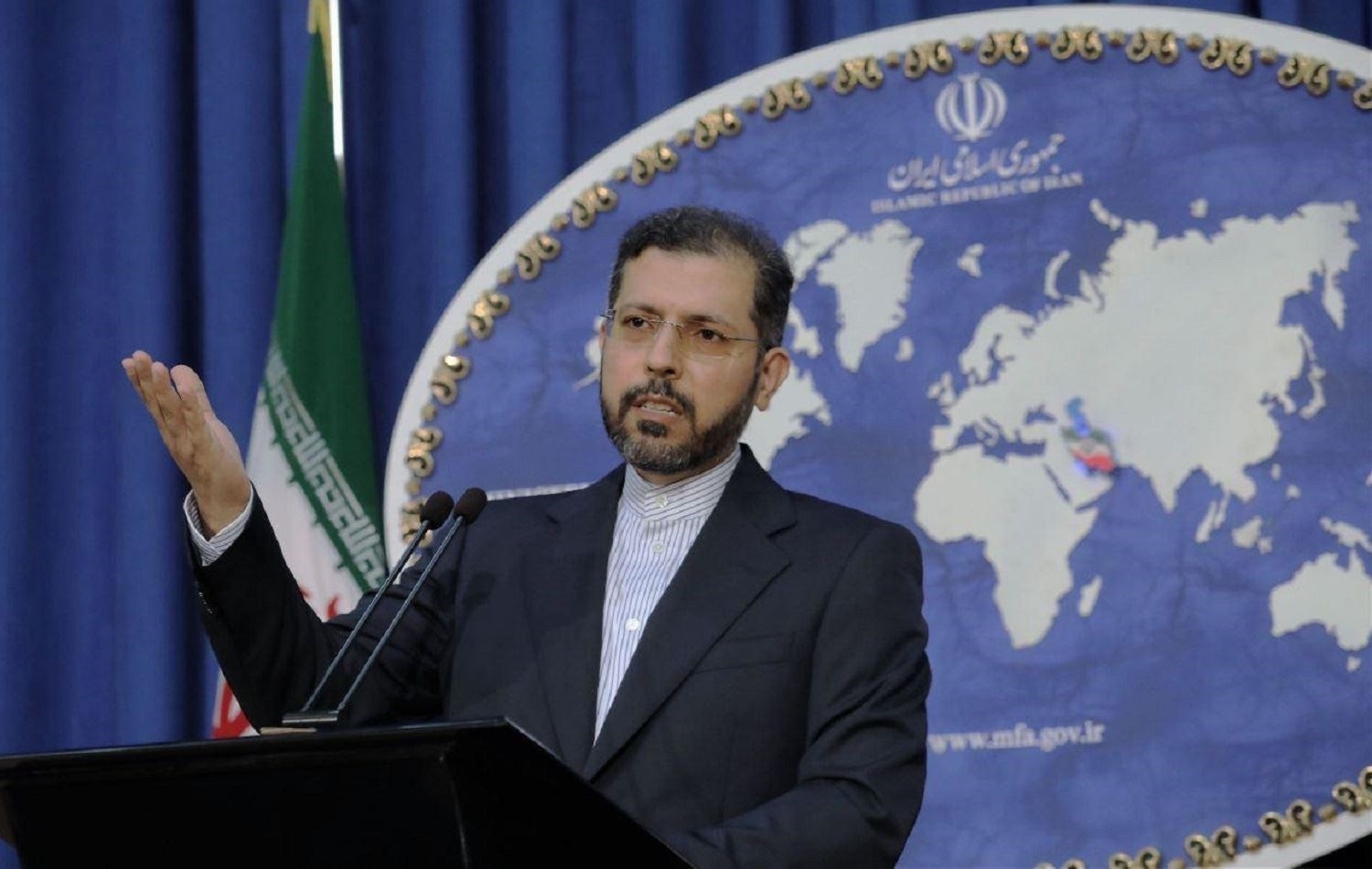Iran: Optimism and pessimism on negotiations part of psych war
Iran's Foreign Ministry Spokesperson Saeed Khatibzadeh discusses a number of issues, including developments in the Iranian-Saudi dialogue and the Vienna Talks.
-

Khatibzadeh: Nothing new in relations with Riyadh
Iranian Foreign Ministry Spokesperson Saeed Khatibzadeh commented on developments in the Iranian Saudi dialogue and said nothing new has happened, noting that Iran is awaiting an answer from Riyadh.
Khatibzadeh discussed a meeting between Iranian Foreign Minister Hossein Amir-Abdollahian and his Saudi counterpart in Islam Abad, saying that both sides exchanged greetings in a normal fashion, in accordance with protocol, on the sidelines of the 17th emergency meeting of the foreign ministers of Islamic Cooperation Council states.
Security talks between Iran and Saudi Arabia were wrapped up last Monday in Oman. A number of security and technical issues were discussed, focusing on reducing the threat of missiles and launch mechanisms, as well as technical measures to build trust between the two, particularly in regard to Iran's nuclear program, cooperation in nuclear fuel, and other matters.
Saudi-Iranian relations had witnessed development recently seen in a number of meetings between officials from both countries. Tehran also resumed its exports to Riyadh and considered this move to be a fruit of the talks with the Saudi capital, achieved through Iraq's mediation.
Iran is unoptimistic, US has submitted no proposals to P4+1
Regarding the Vienna Talks, Khatibzadeh said that Iran is facing a media war initiated by some parties in every round of the talks, in which the E3 has a hand, noting that pessimism and optimism regarding the negotiations are part of the psychological war.
An informed source had told Iran's IRNA news agency that the E3 (the UK, France, and Germany) were attempting to obstruct the Vienna Talks ahead of the Joint Commission meeting.
Khatibzadeh added that Tehran submitted two proposals, where the talks can be resumed, highlighting that if the other parties were as serious about the talks as they were in the last two days, results would have been achieved more quickly.
He added that Tehran hopes that the other side is serious about sanctions removal in order to achieve faster results, adding that his country is not optimistic about the other side's intentions.
The Spokesperson said the US has so far not delivered any proposal to the P4+1, which casts doubt on Washington's seriousness. However, Iran will proceed with the negotiations with a serious mindset hoping that the other sides will present tangible proposals in the next rounds, asserting that his country knows full well what must be done in order to achieve the interests of the Iranian people.
The nuclear talks are expected to be resumed between Christmas and New Year's, after the 7th round's second meeting was wrapped up with Iran submitting two proposals on sanctions removal and its nuclear commitments.
Read more: Reframing Vienna: What about Iran’s Side of the Story?
Iran's retaliation to Israeli threats will be destructive
Commenting on the Israeli occupation's threats, Khatibzadeh said "Israel" was relentless in its attempts to thwart all possible agreements in the region, adding that the reason behind this is the very nature of the Israeli entity.
He added that the international community, unfortunately, does not comment on "Israel's" violation of international law and its possession of nuclear weapons, asserting that Iran's security and military retaliation against any aggression will be destructive.
"Israel" has made allusions to resorting to the military option against Iran's nuclear program and launched a diplomatic pressure campaign against Western countries in an attempt to bring them to force Iran to suspend Iranian enrichment as a precondition to beginning talks and to prevent them from reaching a temporary agreement.
Iran's TSA facility in Karaj
Khatibzadeh has also discussed developments with the IAEA and the agreement to replace surveillance cameras in Iran's Karaj facility.
He said that his country has conducted good talks with IAEA Director-General Rafael Grossi and that relations between Iran and the organization are fine, stressing the importance of the IAEA to distance itself from politicizing technical issues and to examine surveillance cameras before they are installed.
AEOI (Atomic Energy Organization of Iran) Spokesperson Behrouz Kamalvandi announced that Tehran began on Sunday the security and technical inspection of IAEA surveillance cameras in the TSA facility in the city of Karaj, west of the capital Tehran.
Khatibzadeh also commented on the talks by saying that Iran has not conducted any direct talks with the US and that some related messages were received through Enrique Mora, to which Iran has replied.
He also asserted that news and rumors being spread on the return of Iran's Ambassador to Yemen are untrue, stressing that Iran is committed to diplomacy with Yemen and that it is best for those who spread the news to realize the importance of diplomacy.
The Spokesperson announced that Foreign Minister Hossein Amir-Abdollahian will visit Azerbaijan this weekend.

 5 Min Read
5 Min Read








